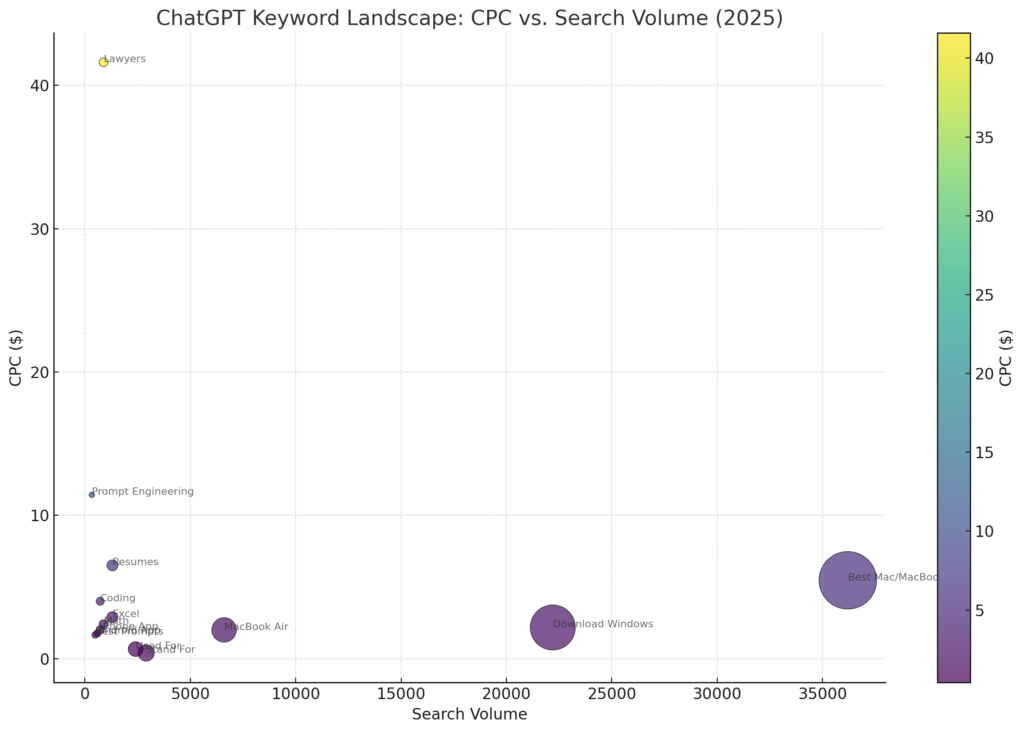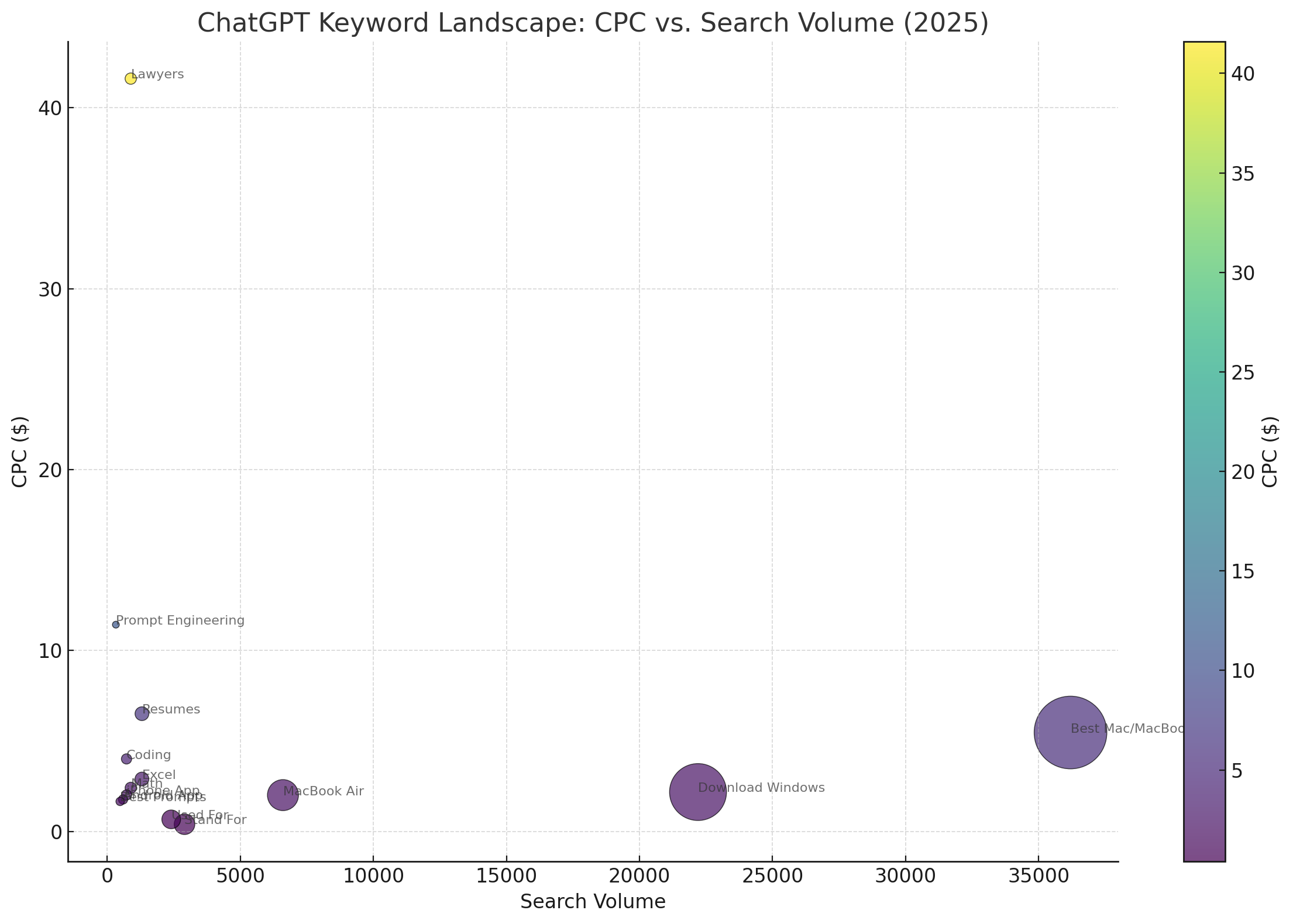Let’s face it: ChatGPT has gone from “cool party trick” to “I can’t live without this” in record time. But if you’re anything like me, you’re probably scratching your head wondering, “What exactly are people searching for about ChatGPT?”
After digging through the top 100 searches using SEO Zen Lab’s keyword research tool, I found some interesting gems especially useful if you’re marketing a product or service and want to align it with what people are already searching for about ChatGPT.
Whether you’re promoting a retail item, a productivity tool, or a professional service, these keyword trends reveal how to personalize messaging and position your offer right where the intent lives.
If you’re optimizing ChatGPT for search engines or planning a campaign around it, this list is more than just keyword data it’s a strategic map to help your product stand out in the AI-driven search era.
1. Give Me ChatGPT… But Make it Device-Friendly

Users don’t just want ChatGPT they want an experience that fits perfectly with how they work and what they love using. Mac users, in particular, tend to value seamless, high-performance tools so think personalization: UI themes, shortcut integrations, even onboarding flows that feel like Apple designed them.
This is where digital strategists can shine by building user journeys, not just user acquisition funnels.
2. ChatGPT in the Workplace: Lawyers and Job Seekers Edition

Professionals want AI help too and they’re willing to pay for it. Lawyers and job hunters are throwing money at this, so sharpen those landing pages.
3. Curiosity and a Dash of AI Ethics

Remember, behind every “What does ChatGPT stand for?” search is a potential customer. Answer basic questions, sprinkle in some environmental honesty, and watch your trust ratings soar.
4. ChatGPT Gets Practical (And Nerdy)

People are looking for real, hands-on guides for practical use. This screams “tutorial content opportunity” louder than your attempts at karaoke night.
5. “Can I Get That ChatGPT App?” – Everyone

Mobile users won’t tolerate a clunky site. Optimize for mobile and app stores or risk losing out.
6. Prompt Engineering: The New AI Buzzword

“Prompt engineering” is the fancy new term for getting ChatGPT to do exactly what you want. Teach this, sell this, make courses on this. It’s the future, baby!
Takeaways

- Tailor-Made Wins: Give people exactly what they want, how they want it—especially if they’re Mac users with deep pockets.
- Answer the Basics: Seriously, explain the simple stuff clearly and gain lifelong fans.
- Think Mobile First: If your site sucks on mobile, users will flee faster than free donuts disappear in the office kitchen.
- Become a Prompt Guru: Prompt engineering isn’t going anywhere. Be the brand that teaches it best, and you’ll be golden.
Whether you’re mapping your next content plan or fine-tuning a product launch, these keyword insights from SEO Zen Lab are here to spark strategy and maybe even a chuckle. Now go forth and personalize like a pro!

